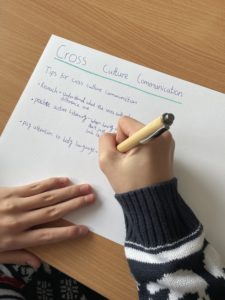Navigating the Importance of Communication: Understanding its Struggles in ELL lessons
Communication is the cornerstone of human interaction, crucial in every facet of life, be it personal relationships, academic endeavors, or professional pursuits. As students navigate the complexities of the modern world, understanding the importance of effective communication and acknowledging its struggles can significantly enhance our journey towards success.

Effective communication fosters understanding and builds strong relationships. Whether it’s expressing our thoughts and emotions to friends and family or collaborating with classmates on group projects, clear communication ensures that everyone is on the same page, reducing misunderstandings and conflicts.
Moreover, in academic settings, communication is paramount for learning and growth. Asking questions, seeking clarification, and engaging in discussions not only deepen our understanding of the subject matter but also encourage critical thinking and problem-solving skills. Effective communication with teachers and peers can lead to valuable insights and academic success.

In the professional world, strong communication skills are often cited as one of the most sought-after qualities by employers. From job interviews to everyday interactions in the workplace, the ability to articulate ideas, listen actively, and convey information concisely can set individuals apart and open doors to opportunities for career advancement. However, despite its importance, communication can also present numerous challenges. One of the most common struggles is overcoming barriers to effective communication, such as language barriers, cultural differences, and perceptual barriers. Misinterpretations due to differences in language proficiency or cultural norms can hinder communication and lead to misunderstandings.
While communication is undeniably essential for success in various aspects of life, it is not without its struggles. Recognizing these challenges and actively working to overcome them through practice, empathy, and continuous learning can empower us to become effective communicators, fostering meaningful relationships, academic growth, and professional success in the process.
The rise of digital communication platforms has introduced new challenges, such as the lack of non-verbal cues and the potential for miscommunication in written messages. In a world where emails, texts, and social media have become primary modes of communication, the ability to convey tone and intention accurately can be a significant hurdle.




